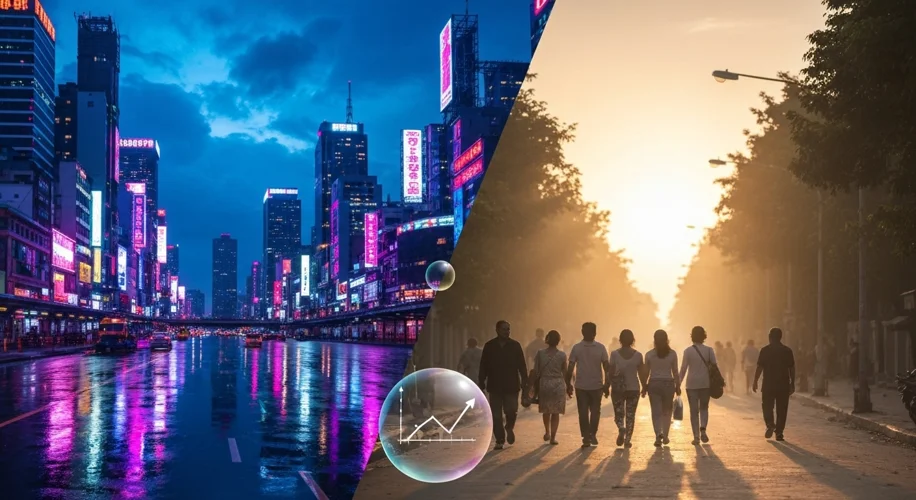I’ve spent a good chunk of my career in the tech world, seeing firsthand how innovation can reshape industries. Now, from my perspective here in Silicon Valley, I’m increasingly focused on the societal impact of these rapid changes, particularly with Artificial Intelligence.
We’re seeing AI’s influence everywhere, driving incredible advancements. But, as with many technological leaps, it’s worth pausing to consider the economic currents it’s creating. Articles discussing insights from figures like Jerome Powell often touch on the delicate balance of economic growth and stability. When AI accelerates this growth, it can sometimes feel like we’re on the cusp of another boom, but what happens when that boom starts to feel like a bubble?
History is littered with examples of speculative bubbles, driven by new technologies or ideas that capture the public imagination and investment. The rapid development and adoption of AI certainly have that ‘buzz’ about them. If the investment outpaces the tangible, long-term value, we could be setting ourselves up for a correction. This isn’t about predicting doom, but about a prudent look at how markets behave when faced with transformative potential.
Beyond the bubble discussion, there’s the issue of wealth concentration. As AI automates tasks and creates new efficiencies, the benefits don’t always spread evenly. We’re seeing discussions about how the wealth generated by AI could further benefit those who already own the technology or the capital to invest in it. This raises important questions about social equity. If AI becomes a primary driver of economic prosperity, how do we ensure that prosperity is shared, rather than exacerbating existing disparities?
From my perspective, the key isn’t to halt progress, but to steer it thoughtfully. We need to ask ourselves: How can we foster AI innovation while also building economic systems that are more inclusive? Are our current policies equipped to handle the wealth creation and potential wealth concentration that advanced AI might bring?
It’s a complex interplay. The excitement around AI is understandable, given its power to solve problems and create new opportunities. However, it’s also important to acknowledge the potential downsides and consider the societal structures that need to adapt. From my experience, the most successful technological shifts are those that bring people along, not leave them behind.

